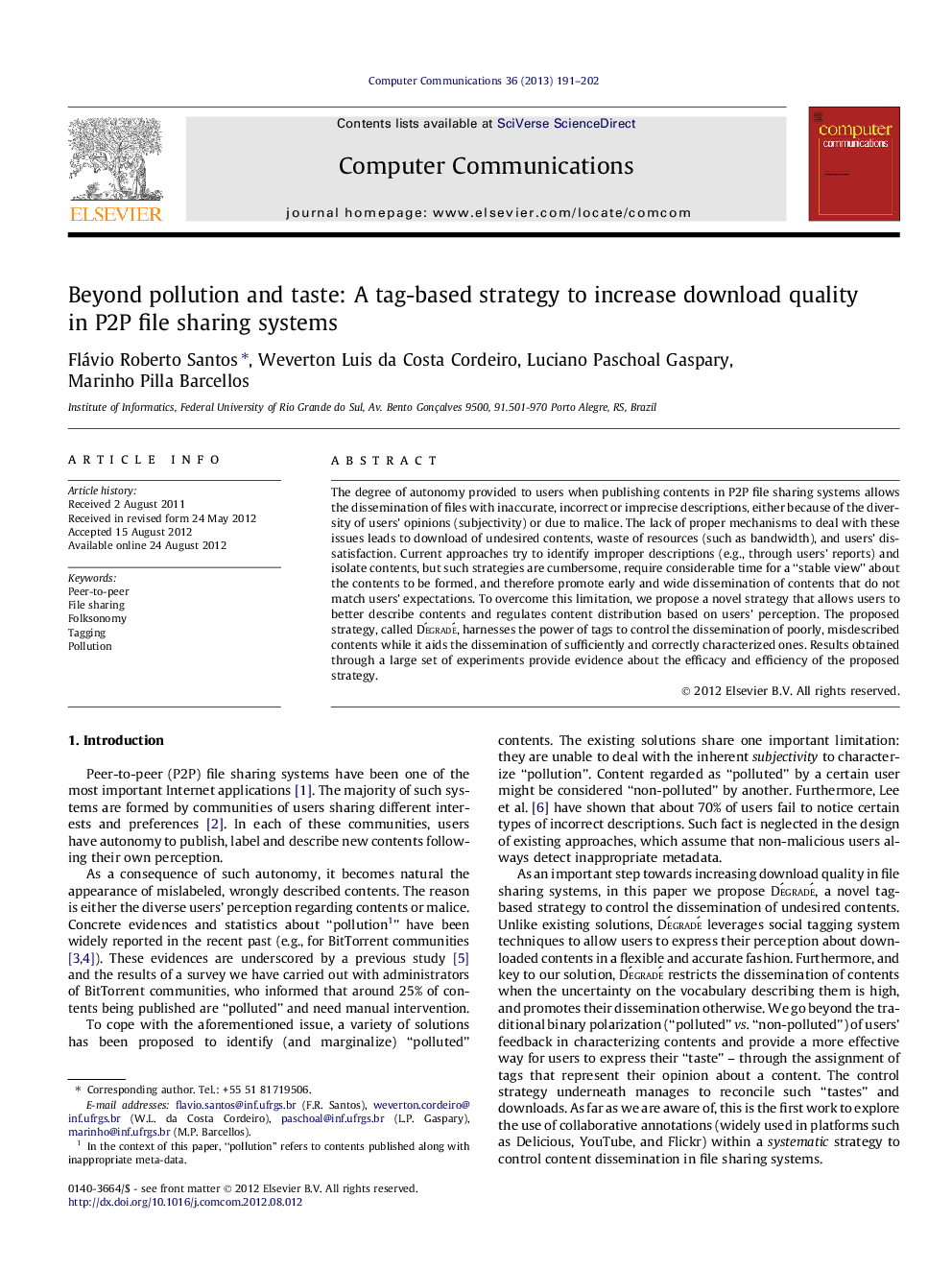| Article ID | Journal | Published Year | Pages | File Type |
|---|---|---|---|---|
| 450078 | Computer Communications | 2013 | 12 Pages |
The degree of autonomy provided to users when publishing contents in P2P file sharing systems allows the dissemination of files with inaccurate, incorrect or imprecise descriptions, either because of the diversity of users’ opinions (subjectivity) or due to malice. The lack of proper mechanisms to deal with these issues leads to download of undesired contents, waste of resources (such as bandwidth), and users’ dissatisfaction. Current approaches try to identify improper descriptions (e.g., through users’ reports) and isolate contents, but such strategies are cumbersome, require considerable time for a “stable view” about the contents to be formed, and therefore promote early and wide dissemination of contents that do not match users’ expectations. To overcome this limitation, we propose a novel strategy that allows users to better describe contents and regulates content distribution based on users’ perception. The proposed strategy, called De´grade´, harnesses the power of tags to control the dissemination of poorly, misdescribed contents while it aids the dissemination of sufficiently and correctly characterized ones. Results obtained through a large set of experiments provide evidence about the efficacy and efficiency of the proposed strategy.
